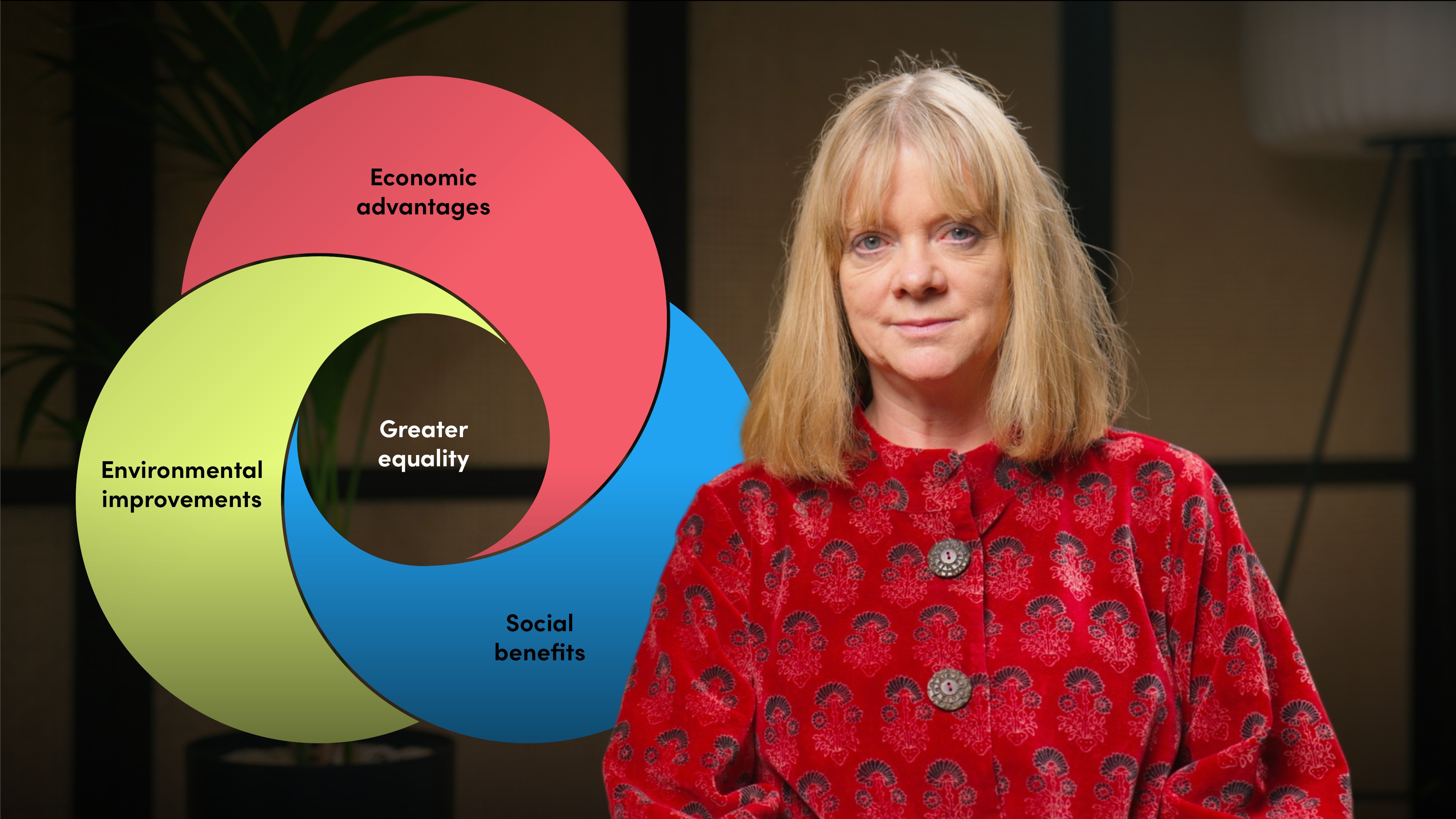
Combatting Economic Inequality

Kate Pickett
30 years: Professor of Epidemiology
In this video, Kate delves into the crucial need for reducing economic inequality to foster societal health and sustainability. She also explores strategies like progressive taxation and addressing tax havens to uncover pathways to redistribute wealth more equitably.
In this video, Kate delves into the crucial need for reducing economic inequality to foster societal health and sustainability. She also explores strategies like progressive taxation and addressing tax havens to uncover pathways to redistribute wealth more equitably.

Combatting Economic Inequality
11 mins 29 secs
Key learning objectives:
Understand how we can reduce inequality
Understand the benefits of labour empowerment
Outline how businesses, employees and individuals can contribute to reducing inequality
Overview:
Reducing economic inequality is crucial for societal health and sustainability. Achieving equality levels like those in Scandinavia is possible, as inequality is not fixed and changes with policy. Strategies include progressive taxation and tackling tax havens, which could redistribute wealth more fairly. Economic democracy through employee ownership and representation, unions, and cooperative models can reduce pre-tax income disparities, making equality more culturally ingrained. Businesses and individuals play a role through ethical practices and activism. Embracing economic democracy and supporting policies that promote equality can lead to a more equitable, sustainable future, aligning with global goals like the UN's Sustainable Development Goal 10.

Kate Pickett
There are no available Videos from "Kate Pickett"

